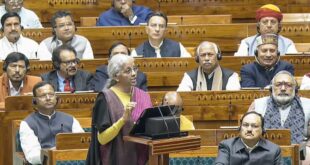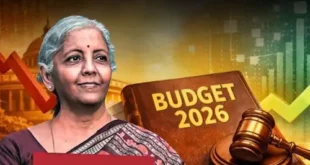Renu Bala Shrivastava
Social media and traditional press media are two distinct forms of media that serve different purposes and audiences.
Social media refers to online platforms that allow users to create, share, and interact with content. Examples of social media platforms include Facebook, Twitter, YouTube and Instagram.
Social media is often more informal and allows for real-time communication and interaction between users. It allows individuals to express their opinions, share their experiences, and connect with others.

Traditional press media, on the other hand, refers to established news organizations that report and publish news stories through various mediums, including newspapers, magazines, television, and radio. These organizations have a responsibility to provide accurate, unbiased information to the public.
They often have trained journalists and reporters who conduct research, interviews, and fact-checking to provide in-depth reporting on important events and issues.
One key difference between social media and traditional press media is the level of control over content. With social media, users have the freedom to post whatever they want, including opinions, rumors, and unverified information. Traditional press media, however, has editorial standards and guidelines that ensure the accuracy and reliability of the information they publish.
Another difference is the way in which information is disseminated. Social media allows information to spread quickly and easily, often leading to the viral spread of news stories and other content. Traditional press media, on the other hand, relies on a slower, more structured process of reporting and publishing news stories.
Overall, both social media and traditional press media play important roles in providing information and shaping public opinion. However, it’s important to understand the differences between the two and to use them responsibly and critically to stay informed.
Fake news and social media
Fake news and social media have become increasingly intertwined in recent years, with the proliferation of false or misleading information spreading rapidly across various social media platforms. This phenomenon has the potential to cause significant harm, as false information can influence public opinion, create confusion and distrust, and even undermine democracy.
Social media platforms have been criticized for their role in the spread of fake news, as they provide an easy and accessible platform for individuals and organizations to disseminate information without any fact-checking or editorial oversight. Social media algorithms also prioritize content that generates engagement and clicks, which can incentivize the spread of sensational or controversial stories, even if they are not based on facts.
To address the issue of fake news on social media, many platforms have implemented measures such as fact-checking, warning labels, and the promotion of authoritative sources.
However, the effectiveness of these measures remains a topic of debate, and the responsibility for combating fake news ultimately falls on both the social media platforms and individual users.
As a user, it is important to be vigilant and critically evaluate the information presented on social media before sharing or believing it. This includes checking the source of the information, looking for corroborating evidence, and being wary of stories that seem too sensational or outlandish to be true.
Overall, the issue of fake news and social media is complex and multifaceted, requiring a concerted effort from both technology companies and individual users to combat the spread of false information and promote a more informed and responsible online environment.
Social media and Free Press
We are observing that the space of investigative and hard journalism in shrinking in major media banners. In this scenario, many of well known journalist are using social media platforms and raising their voice. YouTube journalism is playing a good role for Free Press.
There are several social media platforms being used by independent journalists to share their work, raising questions and build their audience.
Social media can definitely be a useful tool for freelance journalists. It’s important for freelance journalists to use social media wisely and set boundaries to ensure they are able to maintain a healthy work-life balance.
 Jubilee Post News & Views
Jubilee Post News & Views





